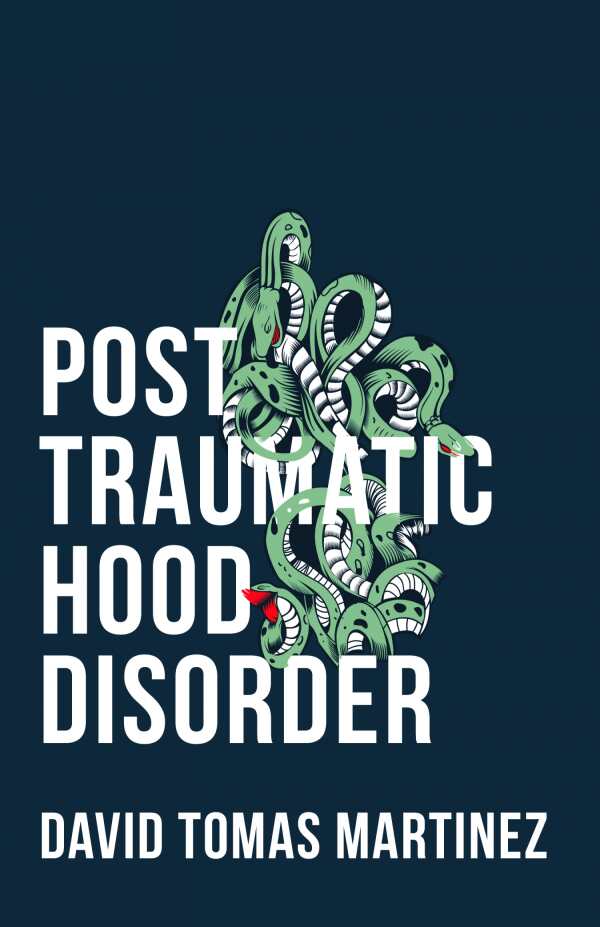Post Traumatic Hood Disorder
From Montaigne to Auden to Sir Mix-A-Lot, Martinez pulls from a broad swath of influences to tell his story of moving into adulthood and measuring what makes a man. For him, the answer is as varied as his influences, which include poetry, rap, masculinity, divorce, and alcoholism.
Martinez’s poetry is thoroughly introspective, with lines like “Not from going without / does healing come / but from going within.” That line employs some of the linguistic machinations that typify the book, as well as its themes; for Martinez, healing doesn’t come from either the outside or from abstinence.
The draw here is Martinez’s mode of storytelling. His lines are sharp and musical, deftly split and carefully crafted. Flexible line breaks create layered poems that nod to multiple, simultaneous meanings. His meter owes as much to rapper Scarface as it does to poet Robert Frost.
Poems enact a kind of personal reconciliation: between Martinez’s life as an academic and his life as a Latino man, his life as a man twice divorced and as a man in love with his wife. Beyond its autobiographical elements, the collection also challenges American politics and culture.
Machismo butts up against tenderness, regret against ambition—always with musicality and attention to what forms on the page. Lines like “I’ll give you something / to cry about became a simple / tourniquet” show a boy who felt silenced into his manhood.
Visually, poems might spill down the right margin or stutter across the page in a zigzag motion; each choice leads to a different kind of reader engagement. Martinez’s are poems to be experienced; they engage sight, sound, and meaning all at once.
Martinez melds an urban background, a modernist’s attention to precision, and a rapper’s flow to form an irresistible collection of contemporary poetry.
Reviewed by
Camille-Yvette Welsch
Disclosure: This article is not an endorsement, but a review. The publisher of this book provided free copies of the book to have their book reviewed by a professional reviewer. No fee was paid by the publisher for this review. Foreword Reviews only recommends books that we love. Foreword Magazine, Inc. is disclosing this in accordance with the Federal Trade Commission’s 16 CFR, Part 255.

